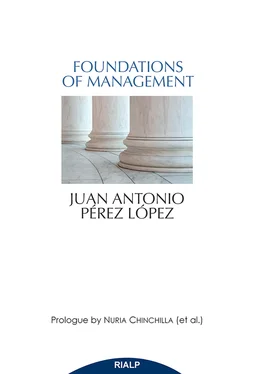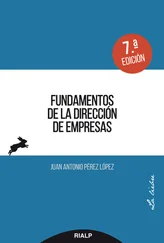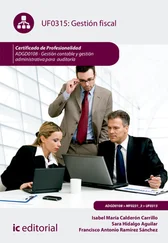At this point, it must be clarified that mutual trust between two people who enjoy freedom does not arise from a spontaneous motivation that aims only for effectiveness: that is, the achievement of particular extrinsic results. Instead:
• It is necessary to be moved by transcendent motives: by the real value that others possess from a practical point of view—that is, to respect the dignity they possess by virtue of being people.
• The motivation must be rational, generating various alternatives that acknowledge the extrinsic, intrinsic, and transcendent effects that will foreseeably be brought about by the action, rather than being carried along by whatever is most appealing.
Thus, for positive lessons to be learned, three things are required:
• Rationality must select the alternative, which should be not only effective but also always consistent.
• The implicit intention must always be to treat the other as another “me,” appealing to that person’s freedom and good will. 3
• There must be a presumption that the other is trustworthy and so that person must be given the opportunity to demonstrate this.
It is clear that this type of decision is very different from the kind that arises spontaneously without previous rational consideration. It is not a matter of “gaining experience” but of creating it, of making possible those experiences that strengthen the relationship through acquaintance with the other: that person’s motivations, intentions, or desires. As a result of this interpersonal relationship, the internalization of the other allows the decision-maker to discover by experience—to sense—profound satisfaction upon finding that his or her actions are reciprocated.
This point opens up an immense panorama for ecology—both environmental and human—as well as for every field in which, in one way or another, the person plays a part. Environmental ecology demonstrates that human beings indulge in excessive consumption and upset the order of natural resources without considering the impact of their actions. If we cut down a tree to obtain its fruit, our action is clearly effective. We have got the fruit that we sought, but we have also eliminated the possibility of doing so in the future.
As simple as this example is, it reflects just how effective an action may be in the short term and yet be inefficient with regard to future decisions. Taking into account the reality, the inner dynamic of the things with which we interact and the people with whom we interact—consistency—is of vital importance for foreseeing an action’s external consequences. From this point of view, Pérez López’s theory explains and predicts what will happen when we make inconsistent decisions because, regardless of whether the decision-maker wishes it or not, the changes will have an influence on both effectiveness and efficiency.
Decisions made with consistency, along with the acquisition of positive evaluative learning, require the decision-maker to “come out of himself/herself” and take an interest in the other person: asking, confirming, finding out what that person’s real needs are—and they require an appropriate response to those needs. Both things are equally necessary: to attain knowledge, and to act accordingly.
When we treat the other according to his or her needs and not according to our own momentary advantage, we demonstrate a true interest in that person. When we stop short of learning what his or her needs are, out of eagerness to achieve certain effectiveness targets for ourselves or for the company, then, whether we intend to do so or not, we are treating that person as a means to those objectives, whose value depends on his or her usefulness. That is, we are treating the person as a resource.
The image that emerges of such a manager is that of a strategist or executive who, under the guise of being helpful, thinks only of him- or herself: an egotist. And this tendency will manifest itself every time the manager needs to make a decision in which his or her extrinsic and/or intrinsic motives are set against the good of another person.
The person treated in this way will have less and less interest in cooperating with such a manager. And this can happen even if the manager’s actions lead to desirable financial results. Each action will have been effective but the actions’ inconsistency will reduce the range of feasible options in future decisions.
As we go about evaluating the consistency of our actions, we will discover whether others are more or less willing to interact with us again. If the other responds to this personal treatment, the value of unity will begin to arise between them in successive interactions: a value through which all possible actions will come to be feasible, 4regardless of the feelings we may have toward a particular person. It is a question of each one receiving the treatment he or she deserves simply by virtue of being a person.
The manager has to value a consistent option—moved by transcendent motives—based on the hypothesis that the other will also be moved (to some degree) by transcendent motivation, while being aware that this hypothesis may not be confirmed. This is the necessary risk entailed in building the relationship of trust that is indispensable for the development of the manager’s collaborators, a responsibility that goes beyond the achievement of other objectives.
When managers are moved by transcendent motives, they are perfected as subjects because their actions leave a mark which, like it or not, 5will alter their future trajectory. And this is true even if managers discover that particular collaborators are untrustworthy, since the managers will have helped the collaborators to the extent possible and this too will leave its mark on the others.
The “inner strength” that the consequences of the decision or action will generate in the subject him- or herself make it easier for the manager to make correct decisions again. When next faced with a decision that is very appealing from an economic perspective but is unjust, the manager will be better able to reject it, since his or her rational motivation will have acquired the facility of spontaneous motivation. The manager will be capable of assessing other options that are advantageous—perhaps not as much as the first one or perhaps more—and that are also ethical (consistent) and thus do not destroy mutual trust.
The strength that moves the manager to act in this way is given by an “intelligent heart,” one that knows how to discover the most suitable course in every scenario: the manager has learned how to integrate his or her wants and duty, and not merely by use of the Kantian “ought” or by equating the ethical with the economically profitable. This strength will also help the manager to avoid inconsistent actions, since he or she chooses to be ethical from a place of freedom and not because of any imposition from outside: the manager knows and values the deeper satisfaction that comes from establishing a relationship of trust, rather than the gratification that other goods produce.
Pérez López highlights the fact that ethics is based on the reality of the decision itself and not on abstract rational principles employed by ethical theories, nor on particular extrinsic effects. If rationality (the wanting) and will (the doing) increase in a consistent action plan, the affection for the other (the feeling) in the act itself will increase at the same time. A manager can only grasp what a person is doing for him or her—what an action costs that person—to the extent that the manager has been capable of doing the same for that person or for another. This means entering into the circle of affectivity and of gratitude for these actions, rather than remaining locked within the game of opportunistic interests.
Читать дальше












